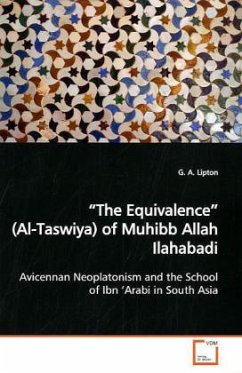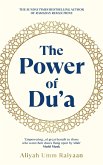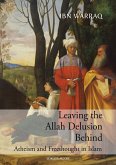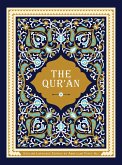The so-called Sufi fight of 17th century India
between Ahmad Sirhindi and Ibn Arabi has been
repeatedly portrayed in modern South Asian
historiography as an epic clash of metaphysicians.
Orientalists and reformers alike have cast Sirhindi
as a revolutionary of pure Islam who tirelessly
combated the heretical ideas of the Shaykh al-Akbar.
Yet, the continuing preoccupation with Sirhindi as an
opponent of Ibn Arabi has overshadowed other
important Indian Sufis of the same period,
particularly the Chishti Shaykh Muhibb Allah
Ilahabadi, known in India as the second Ibn Arabi.
Despite being recognized as the most prolific Chishti
author, Muhibb Allah s writings are virtually unknown
to contemporary scholarship, and remain mostly in
manuscript form. This monograph focuses on Muhibb
Allah s most controversial and important treatise,
"The Equivalence" (Al-Taswiya), which demonstrates an
innovative integration of philosophical traditions
within the larger context of Ibn Arabi s school in
17th century India post-Sirhindi. This historical and
intellectual analysis will be useful to those
interested in South Asian Islam, the metaphysical
tradition of Ibn Arabi, and Sufism in general.
between Ahmad Sirhindi and Ibn Arabi has been
repeatedly portrayed in modern South Asian
historiography as an epic clash of metaphysicians.
Orientalists and reformers alike have cast Sirhindi
as a revolutionary of pure Islam who tirelessly
combated the heretical ideas of the Shaykh al-Akbar.
Yet, the continuing preoccupation with Sirhindi as an
opponent of Ibn Arabi has overshadowed other
important Indian Sufis of the same period,
particularly the Chishti Shaykh Muhibb Allah
Ilahabadi, known in India as the second Ibn Arabi.
Despite being recognized as the most prolific Chishti
author, Muhibb Allah s writings are virtually unknown
to contemporary scholarship, and remain mostly in
manuscript form. This monograph focuses on Muhibb
Allah s most controversial and important treatise,
"The Equivalence" (Al-Taswiya), which demonstrates an
innovative integration of philosophical traditions
within the larger context of Ibn Arabi s school in
17th century India post-Sirhindi. This historical and
intellectual analysis will be useful to those
interested in South Asian Islam, the metaphysical
tradition of Ibn Arabi, and Sufism in general.



